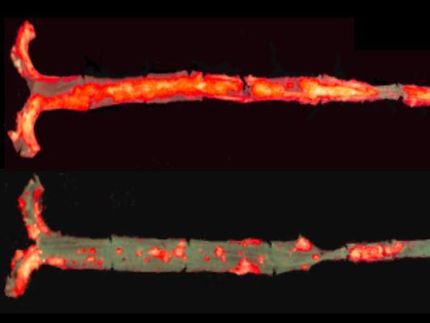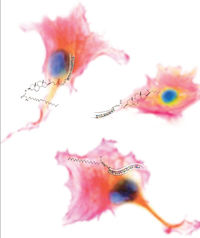Origo Biosciences Identifies Anti-Cholesterol Factor in Milk
New dairy-derived antibody to cholesterol may provide passive immunity to hypercholesterolemia.
Advertisement
Origo Biosciences announced that it has identified a dietary antibody to cholesterol. When ingested, this naturally-occurring protein binds to cholesterol in the human digestive tract and blocks its absorption into the bloodstream.
The discovery of this dairy-derived cholesterol absorption inhibitor may enable a new generation of functional dairy ingredients. Whey protein concentrates with anti-cholesterol antibodies would provide food and beverage companies with yet another proven functional food ingredient that already has widespread consumer appeal.
Elevated cholesterol levels are considered to be the single most important predictor of atherosclerosis and coronary heart disease. More than $33 billion is spent on pharmaceutical products and another $3 billion on functional foods that help consumers to manage their cholesterol levels.
Managing cholesterol at the site of absorption is an increasingly popular strategy in the war on hypercholesterolemia. Phytosterols are currently the only cholesterol absorption inhibitor approved for use as a food ingredient. And Zetia(TM), the new blockbuster drug from Schering-Plough and Merck, is the only such inhibitor approved as a drug.
Origo evaluated dairy sources from the US, Europe, New Zealand and Australia, including whey protein concentrates, colostrums, and fluid milks, measuring levels of anti-cholesterol antibodies. The company found a wide variation in anti-cholesterol concentrations, with several sources containing many hundreds of times more activity than the most popular whey protein concentrates and fluid milks.
The company recently completed an in vitro evaluation of several sources, measuring their impact on cholesterol absorption in human intestinal cells. Origo found that several of these sources significantly blocked cholesterol uptake at levels exceeding those previously reported for phytosterols and Zetia(TM).
Anti-cholesterol antibodies were discovered nearly a half a century ago. Numerous studies have since shown that when these antibodies are introduced into circulation they facilitate the clearance of harmful forms of cholesterol such as LDL and VLDL. Origo's current discovery and intellectual property recognizes that these antibodies may also be found in certain dairy sources and may be effective in the digestive tract, preventing the absorption of cholesterol.
Origo is currently collaborating with a major research university to evaluate the efficacy in a preclinical animal trial. Following the completion of these preclinical studies, the company plans to conduct a human clinical evaluation.
Other news from the department science
Most read news
More news from our other portals
See the theme worlds for related content
Topic world Antibodies
Antibodies are specialized molecules of our immune system that can specifically recognize and neutralize pathogens or foreign substances. Antibody research in biotech and pharma has recognized this natural defense potential and is working intensively to make it therapeutically useful. From monoclonal antibodies used against cancer or autoimmune diseases to antibody-drug conjugates that specifically transport drugs to disease cells - the possibilities are enormous

Topic world Antibodies
Antibodies are specialized molecules of our immune system that can specifically recognize and neutralize pathogens or foreign substances. Antibody research in biotech and pharma has recognized this natural defense potential and is working intensively to make it therapeutically useful. From monoclonal antibodies used against cancer or autoimmune diseases to antibody-drug conjugates that specifically transport drugs to disease cells - the possibilities are enormous
























































